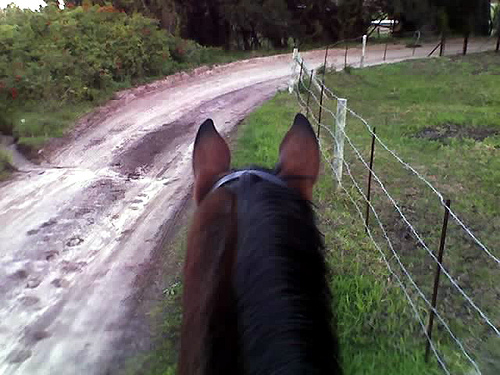What It Takes to Become a Proficient Writer
Malcolm Gladwell’s 2008 best seller, Outliers, centers on the premise that, regardless of a person’s pursuit, it takes about 10,000 hours to become proficient, or perhaps an expert.
Gladwell discovered that hugely successful people such as Bill Gates, Robert Oppenheimer, and The Beatles had put in the requisite 10,000 hours into their field or craft. It just seems to be a very basic rule that to become proficient in any field, you need to put in a lot of time—which equates to a lot of years of diligent effort.
There are no shortcuts or get-smart-quick ways about it. Unless you’re a prodigy or Mensa genius, you are going to have to become an expert the old-fashioned way—by hard work and persistence.
In this modern age of instant gratification in which we can’t even tolerate more than five seconds for a web page to load, the idea of having to take such a long time becoming an expert in our craft is downright annoying. We want it all now—success, recognition, fulfillment.
“But Writing Is Different!”
As a copyeditor, I see lots of manuscripts lacking in brilliance and writing expertise—as do literary agents and acquisition editors. Yet, I’ve come across many new writers who state that because they are just “naturally talented,” or they’ve “read a ton of books,” they can justify bypassing the needed amount of training and honing of their craft that perhaps an ordinary person might need.
Oftentimes, when feeling the spirit of creativity moving on our imagination and heart, revealing to us words and themes and concepts, we figure all we need do is write it all down and—voila! a masterpiece. Many writers feel all you need is talent—you either have it or don’t—and so if you use that talent and sit down and whip out a book, that’s all that’s required to hit the best-seller lists.
Funny how writing seems to fall into its own special category. If I felt called in life to be a brain surgeon, people would think me nuts to walk into a hospital, state I was “destined to become a surgeon,” and ask for a scalpel to operate on the patient on the table. In fact, should I press forward and take scalpel in hand, I would quickly be carted off by force and removed as far from that hospital as possible—to protect the patient lying on the table. I might even find myself in a nifty jacket that ties in the back, where my eager hands can’t reach the fasteners.
Reasonable people expect aspiring surgeons to put in the requisite hours of study, residency, and supervised and assisted training to work up to being the capable doctor they hope to be. This is the same across professions—whether one hopes to practice law, build a skyscraper, or even drive a school bus full of squirrelly children.
Some “careers” may not call for 10,000 hours of diligence, but Gladwell notes that to become an expert in your field, to rise above the masses, that seems to be the magic number. That’s about 20 hours a week for 10 years of practicing and honing your craft. We feel comforted when we hear our 747 pilot has logged in over 10,000 hours of flight time. We might not feel so at ease if we were told this was his first time behind the wheel (or stick).
“What’s Taking So Long?”
Sometimes new writers lament that they haven’t been able to sell their first manuscript after a hard year of writing and querying agents. Maybe even after even five years they ask, why is this desired goal of publishing next to impossible?
I would venture to say this: Maybe the goal feels impossible to reach because they haven’t yet put in their 10,000 hours. Sure, it can feel like walking 10,000 miles, but when you take such a lengthy trip through many lands, you grow and learn and absorb the cultures and surroundings until they become part of your soul and fill your cache of imagination to the full.
We need to mature in our writing. Our writing technique and voice needs to age like a fine wine. Remember that slogan “We serve no wine before its time”? How about: “We sell no manuscript before its time”?—meaning our writing should be honed and refined as we learn and grow through life.
There’s a kind of maturity that comes with age, and our writing matures as well. Aside from just the refinement and tightening that comes from endless hours of actual writing (practice), we gain a deeper insight into the life experience. We can share things from a deeper place in our hearts because we have already walked a long road in life full of experiences, both joyful and tragic.
What to Do during Those 10,000 Hours
It’s easy to see how practicing a musical instrument for thousands of hours will help you arrive at the point of expertise, but how does this equate in terms of writing? Do we just sit down and write—anything, everything—and once we get to 10,000 hours we will find we are an expert in our craft?
It’s not quite that simple. Writers are wielding words, concepts, abstractions, metaphors. You could compare a writer studying and mastering the construct of language in the way a musician might master her scales and arpeggios. Over time, the study of grammar, spelling, and punctuation will help a writer be proficient with the English (or other) language, and that’s very important.
But 10,000 hours spent learning just those things does not a writer make. It can produce a great English comp teacher, or copyeditor. But a novelist? That requires a little more than just learning how to put together a proposer sentence and know where a comma goes (which, from my editing experience I’d guess most writers do not know).
Novelists need to have a toolbox full of various tools to use in their craft, and a lot of things can influence and aid in gathering those tools over the years. Here is a partial list of things writers can avail themselves of in order to gain the expertise needed to become a great writer:
- Study books on writing craft. Don’t just read them but put into practice the things read as you write.
- Attend writers’ conferences and take workshops. Take notes and practice the things you learn there.
- Focus on one or two weak areas in your writing the way an athlete will spend 80 percent of her time working on the 10 percent of her ability that is lacking to bring it up to speed.
- Get a critique partner or join a critique group. Regularly have others give you constructive feedback on your writing and listen humbly and openly to their advice. You don’t have to accept everything everyone says, but pay attention to the points that make sense to you and work to improve what needs improvement. It’s better to work on just one section of your manuscript, doing many revisions to get it perfect, than to keep writing book after book without taking the time to delve into each sentence and paragraph to get it just right.
- At some point seriously consider hiring a copyeditor/writing coach who can professionally evaluate your work, tear it apart, and help you determine your strengths and weaknesses. If you feel you’re just not “there” yet and friends and family say your books are “just great” but you wonder if you’re missing something, hire a professional.
Think about the Journey—Not the Destination
A few—very few—writers find “success” or publication after only a year or two of starting their journey as a writer, but that’s not the norm. Talk to most authors who have been publishing for years and you will often hear numbers thrown around: “It took me ten years to get an agent . . . twelve years to get my first publishing contract . . .”
Sure, there are factors of timing, accessibility to conferences, personality, the genre you write in juxtaposed to the market needs. All these things can have a bearing on your “success.” But, rather than focus on the “success” part, I’d rather focus on the “expert” part. Don’t forget to remind yourself that it’s all about the journey, not the destination.
Featured Photo by Yannick Pulver on Unsplash












Excellent post. I’m currently 78. My first book was published in 1972. I was saved from all of my rookie mistakes and the arrogance of youth by an absolutely first-rate editor. I can look back on my journey, though, and spot the 10 I achieved basic mastery. It was 10 years of a lot of writing, a lot of feedback, and a lot of reflection. Everything since then has been building on the foundation I built from my first editor’s lessons and from my 10-year intensive learning experience. There are no shortcuts
Thanks for sharing that, Wally!